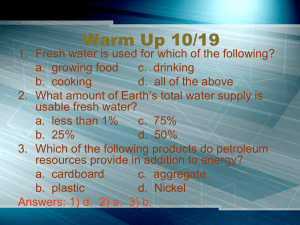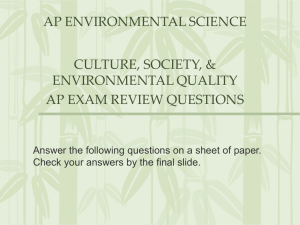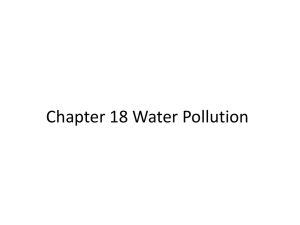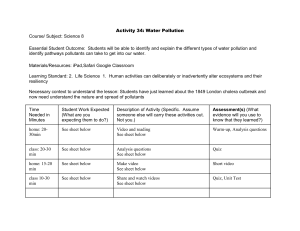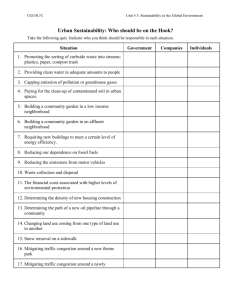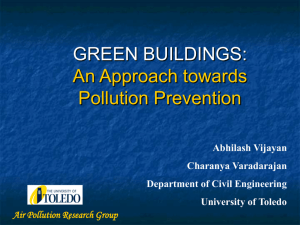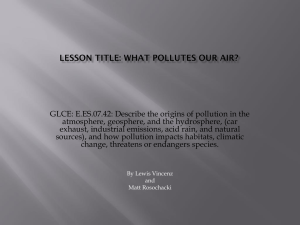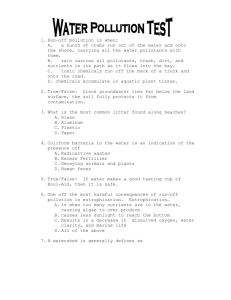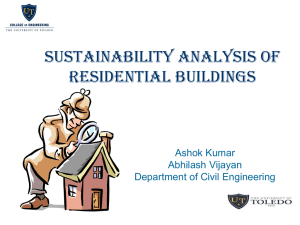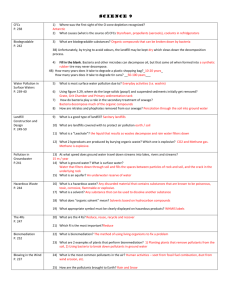Study program: Civil Environmental Engineering
advertisement
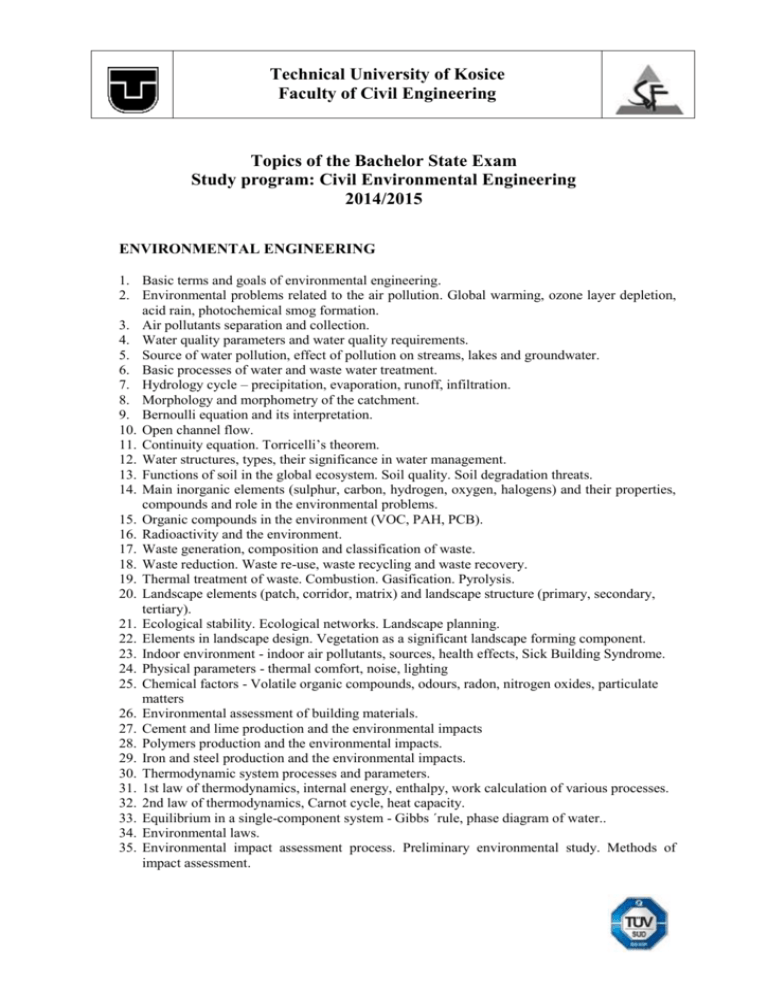
Technical University of Kosice Faculty of Civil Engineering Topics of the Bachelor State Exam Study program: Civil Environmental Engineering 2014/2015 ENVIRONMENTAL ENGINEERING 1. Basic terms and goals of environmental engineering. 2. Environmental problems related to the air pollution. Global warming, ozone layer depletion, acid rain, photochemical smog formation. 3. Air pollutants separation and collection. 4. Water quality parameters and water quality requirements. 5. Source of water pollution, effect of pollution on streams, lakes and groundwater. 6. Basic processes of water and waste water treatment. 7. Hydrology cycle – precipitation, evaporation, runoff, infiltration. 8. Morphology and morphometry of the catchment. 9. Bernoulli equation and its interpretation. 10. Open channel flow. 11. Continuity equation. Torricelli’s theorem. 12. Water structures, types, their significance in water management. 13. Functions of soil in the global ecosystem. Soil quality. Soil degradation threats. 14. Main inorganic elements (sulphur, carbon, hydrogen, oxygen, halogens) and their properties, compounds and role in the environmental problems. 15. Organic compounds in the environment (VOC, PAH, PCB). 16. Radioactivity and the environment. 17. Waste generation, composition and classification of waste. 18. Waste reduction. Waste re-use, waste recycling and waste recovery. 19. Thermal treatment of waste. Combustion. Gasification. Pyrolysis. 20. Landscape elements (patch, corridor, matrix) and landscape structure (primary, secondary, tertiary). 21. Ecological stability. Ecological networks. Landscape planning. 22. Elements in landscape design. Vegetation as a significant landscape forming component. 23. Indoor environment - indoor air pollutants, sources, health effects, Sick Building Syndrome. 24. Physical parameters - thermal comfort, noise, lighting 25. Chemical factors - Volatile organic compounds, odours, radon, nitrogen oxides, particulate matters 26. Environmental assessment of building materials. 27. Cement and lime production and the environmental impacts 28. Polymers production and the environmental impacts. 29. Iron and steel production and the environmental impacts. 30. Thermodynamic system processes and parameters. 31. 1st law of thermodynamics, internal energy, enthalpy, work calculation of various processes. 32. 2nd law of thermodynamics, Carnot cycle, heat capacity. 33. Equilibrium in a single-component system - Gibbs ´rule, phase diagram of water.. 34. Environmental laws. 35. Environmental impact assessment process. Preliminary environmental study. Methods of impact assessment. The subjects of the orientation of the final thesis AIR PROTECTION 1. Atmosphere´ layers, air composition, global problems of the air pollution. 2. Air pollution, primary and secondary pollutants, main industrial sources of the air pollution, the typical emissions originating from the combustion processes. 3. Air protection, removal methods and removal processes of the air pollutants, the types of industrial dust collectors, principle of electrostatic precipitators. WATER MANAGEMENT 1. Water quality parameters (physical, chemical, biological). 2. Methods of water treatment, filtration, settling, coagulation and flocculation, disinfection. 3. Methods of wastewater treatment, primary treatment, biological treatment, sludge treatment and disposal. SUSTAINABILITY ASSESSMENT OF BUILDINGS 1. Importance of sustainability assessment of buildings. 2. Worldwide used systems for assessing the sustainability of buildings. 3. Environmental, social and economic aspects and indicators of sustainability assessment of buildings.
